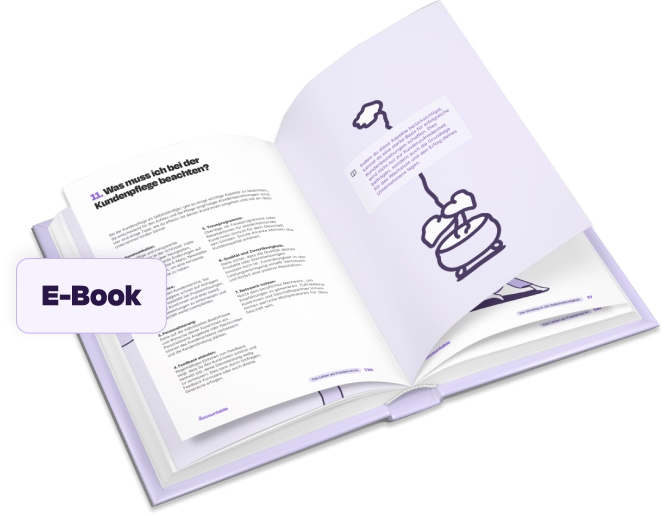20 Kapitel knallhart recherchiert und vom Steuerprofi geprüft
Kostenlos herunterladen

Author - Sophia Merzbach
Sophia has been a key member of the Accountable team for many years, bringing a unique blend of journalistic precision and in-depth tax expertise to her work.
Who is Sophia ?Thank you for your feedback!
Useful
How much income tax is deducted from your income is largely determined by your tax class. There are ...
Read moreWorking as a self-employed professional has many advantages: You are your own boss and you can choos...
Read moreWorking with international clients can be tricky, depending on where exactly they’re located, whet...
Read moreWhat I really appreciate is that you can quickly help me with my doubts about taxes, invoicing, and how to do things right in Germany. I've never been freelance and I am not German, so for my this support is crucial, especially because it's so hard to find an advisor in Berlin that I was almost going to give up, but I am happy I started with Accountable. The only thing I would do better is to see in my dashboard the status of the application as freelance to the finanzamt, since that was done through your site and there is no connection to that in my dashboard.
Francisco Javier Aguilar Sanchez
Mein Steuercoach hat zunächst versucht meine Frage besser zu verstehen und Nachfragen gestellt. Nachdem der Sachverhalt nicht direkt geklärt werden konnte, blieb man hartnäckig und hat sich mit Kollegen ausgetauscht, bis ich eine Lösung hatte. Das war genau so, wie ich es mir vorgestellt hatte. Bin sehr zufrieden
Michael Hofmann
Ich bin echt begeistert von Accountable.
Anonym
Ich hatte ein Problem mit dem Importieren von Eingangsrechnung (Fahrtkosten). Die Aufgabe hat Anahita übernommen und gelöst. Mein Problem wurde ernst genommen, sie hat Kontakt gehalten und schlussendlich wurde es von der IT gelöst. Vielen Dank.
Heinz Wiemers
Simon gave me a quick response and explained everything very kindly and clearly. I really appreciate his excellent customer support.
Yuki Shiroi
super einfach , Unterstützung von jede Seite ! Ki super gut ! TOP !
Alexander Abel
Ich liebe die Einfachheit, die KI-Unterstützung und dass ich schnell Rückmeldung erhalte:).
Anonym
Hallo! Also ich muss sagen, ich bin so so so positiv überrascht wie hilfsbereit das Accountable Team ist und wie ambitioniert mir bis jetzt geholfen wurde. Sowas habe ich noch nie erlebt :> Ich werde die App weiterhin gerne nutzen. Lg Kristin Speck
Kristin Speck
Ich bin froh, dass es Euch gibt! Bisher war mir Euer Programm nützlich und die Betreuung durch Euch ist recht gut! herzlichen Dank!
Semjon H. N. Semjon
ich finds super wenn man sich mal in ruhe damit beschäftigt hat
Horst Stauff